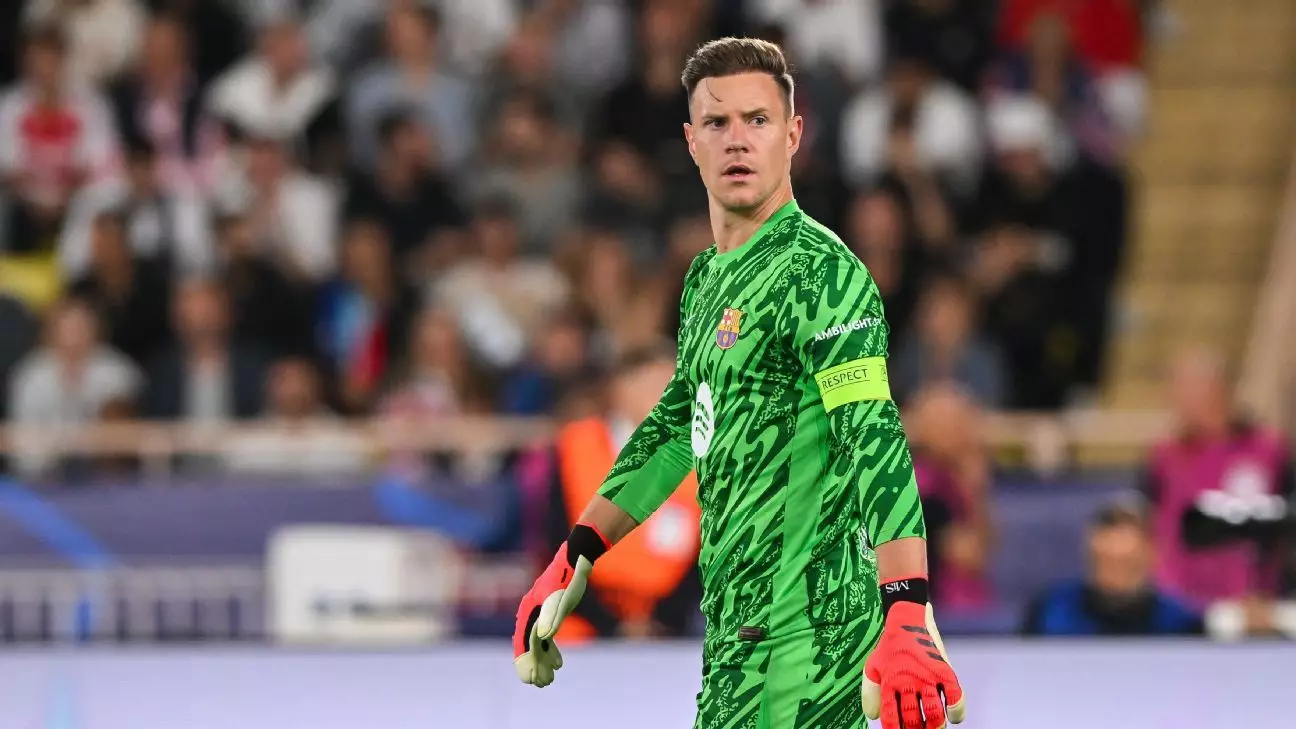In the highly competitive world of professional football, clubs are often caught in a delicate balancing act between respecting player autonomy and pursuing logistical advantages. Barcelona’s recent handling of Marc-André ter Stegen’s injury situation exemplifies this tension, revealing not just a club seeking strategic flexibility but also underlying ethical dilemmas that merit scrutiny. The German goalkeeper’s decision to refuse sharing medical data demonstrates an increasing assertion of player rights, which conflicts with club efforts to optimize registration rules and team composition. This scenario throws into sharp relief the broader debate about the boundaries of club authority versus individual rights in elite sports.
From the club’s perspective, the injury management process is more than just treatment—it’s intertwined with financial planning, squad registration, and competitive strategy. La Liga’s injury rules aim to provide clubs with some financial relief when players are sidelined long-term, but this relief hinges on transparency and player cooperation. When Ter Stegen declines to sign consent forms effectively blocking the medical data sharing, Barcelona faces a logistical deadlock. Their willingness to consider legal alternatives highlights a desperation built from their failure to adapt to modern player-centric protocols, revealing a mindset perhaps rooted in traditionalist club culture that undervalues player privacy.
Furthermore, this dilemma exposes the core challenge of modern football: how to align club needs with individual rights without crossing ethical lines. While clubs undoubtedly operate under a competitive imperative, players are increasingly aware of their autonomy and the potential misuse of their sensitive information. The refusal by Ter Stegen exemplifies a growing assertion of this independence, possibly fueled by broader concerns about data privacy in an era of digital profiling. The tension intensifies as Barcelona considers disciplinary actions—including potential fines—raising questions about whether force or legal pressure are appropriate responses to a player exercising his rights, or whether these measures risk undermining player-club trust.
Strategic Consequences and the Future of Player-Club Relationships
Barcelona’s response to this impasse hints at deeper shifts in the club’s leadership approach. The fact that the team’s sporting director, Deco, was caught off guard by Ter Stegen’s outright refusal underscores a possible disconnect within the club’s management. Instead of fostering a collaborative dialogue centered on mutual understanding, the club seems to be resorting to disciplinary threats and internal pressure tactics. This approach can catalyze long-term damage to the player-club relationship, especially given Ter Stegen’s key role in the team and his national team aspirations.
Complicating matters is the club’s strategic plan following Ter Stegen’s injury—signing Joan García and renewing Wojciech Szczęsny’s contract highlights their urgent need for reliable goalkeeping options. Yet, this reliance on other players, driven by contractual and logistical considerations, could undermine team chemistry and stability if the goalkeeper’s recovery is prolonged or if the dispute escalates. It also raises questions about the club’s loyalty and respect for player agency—if Ter Stegen’s decision is penalized or disregarded, it may set a precedent that discourages transparency and open dialogue with players in future scenarios.
The broader implication is that football clubs need to evolve beyond traditional authoritarian models of management into environments valuing player autonomy and ethical integrity. The case also underscores an urgent necessity for clear, fair policies regarding health data sharing—balancing club interests with player privacy rights—so similar conflicts do not undermine team cohesion or professional ethics.
In essence, Barcelona’s choices reflect the tensions of a sport in transition, caught between old-school pragmatism and the modern imperative of respecting individual rights. Whether this leads to a hardening of attitudes or sparks reforms in player-club relations remains to be seen. What’s undeniable, however, is that the outcome of this dispute will resonate beyond mere regulatory compliance, potentially shaping the future integrity of player management in elite football.

